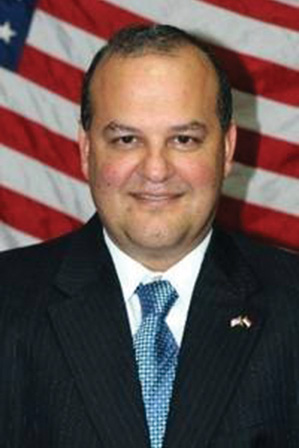Working for You During This Trying Time
State VP Voice
BY TOM YAZDGERDI

In this unsettling time of social distancing, AFSA has been proud to help our members, both overseas and domestic, cope with the unprecedented demands made on all of us by the new coronavirus disease, COVID-19.
I want to share with you some of the requests for help that we have received and the actions we have taken.
As of this writing (in late March), some of these issues have already been resolved, while new ones are arising. As always, we will continue to represent the interests of our members to department leadership and be responsive to you.
Medical/Safety Concerns. Our crack Labor-Management team has assisted members with a myriad of medical/safety issues, such as concerns about adequate protective supplies (e.g., face masks, gloves, hand sanitizer) for members who deal with the public, especially visa officers; which office safety procedures must be followed in the event an employee shows flu-like symptoms; and getting approval for use of local clinics abroad to test for COVID-19.
Of course, your first move should be to check with your medical practitioner at post or your bureau’s EX office. But if your problem or concern is not resolved, we are always here to help, in a confidential manner, if need be. AFSA has an excellent relationship with MED and can get answers.
Child Care, Elder Care and Telework. Many members have been concerned about balancing teleworking with having to use annual leave, or go on leave without pay, to take care of children or elderly relatives. This is especially true because schools have been closed and day care/nannies are largely unavailable.
At the urging of AFSA and others, the department rolled out a policy to make work hours more flexible for working parents. You can find the policy at afsa.org/coronavirus-covid-19.
This has helped, but as we made clear in an AFSAnet message, too many of our colleagues were facing untenable choices: caring for loved ones; using leave (often scant for parents of newborns and junior staff) or borrowing leave from others; or simply not working—a particularly worrisome option in these times.
We were thus very happy to see the department officially adopt on April 2 a policy to provide 20 hours of administrative leave per pay period to employees for dependent care, retroactive to February 16. We hope that all of AFSA’s member agencies, including the Foreign Commercial Service and the Foreign Agricultural Service, will follow suit.
New Hires Need to Be Paid. We have received anxious requests for help from new hires—both incoming officers and specialists—who have been told that orientation classes scheduled to start soon have been postponed, but nothing has been said to them about their paychecks, health care or other benefits.
Many of these future Foreign Service (and AFSA) members have moved spouses, children and belongings across the country or from overseas to begin their new careers. We have engaged with the Bureau of Global Talent Management and senior department leadership to argue that these new employees must be paid.
We have also suggested that perhaps orientation classes can be done by distance learning or some other creative approach that does not shut down the intake process completely.
The department has recognized this problem and has taken some action—such as offering to send letters to previous employers—and that’s a step in the right direction. However, the money has already been budgeted, and the right thing to do is to pay these people from the start.
Help for Those in Long-Term Training. We have heard from members who are at the end of their long-term training and are ready to deploy overseas, but are at the 25-percent tail end of the lodging per diem allowance.
Now that normal transfers have been disrupted, these members might have to stay put for a number of months and consequently will continue to be out-of-pocket in high-cost lodging. They could probably move, but in this unprecedented environment, does that make sense?
We have asked department leadership to find a way to help these members stay where they are without having to dip into their savings.
EER Season Flexibility. At State, we all know that GEMS, the system designed to move your Employee Evaluation Report through the various stages of the process, is not user-friendly in the best of circumstances.
Combine that with trying to access GEMS through the various remote access variants of the department’s Global OpenNet (GO) system, and it really makes things tough.
In response, and again at our urging, the department has extended the EER deadline by two weeks, to May 29.
We will continue to push the department to surge its IT staff so that as the busy EER season gets underway, solutions to remote access questions can be provided in a timely fashion.
Please continue to let us know how we can help at member@afsa.org or (202) 647-8160. No question or concern is too big or too small for us to handle.
Stay safe and healthy!

